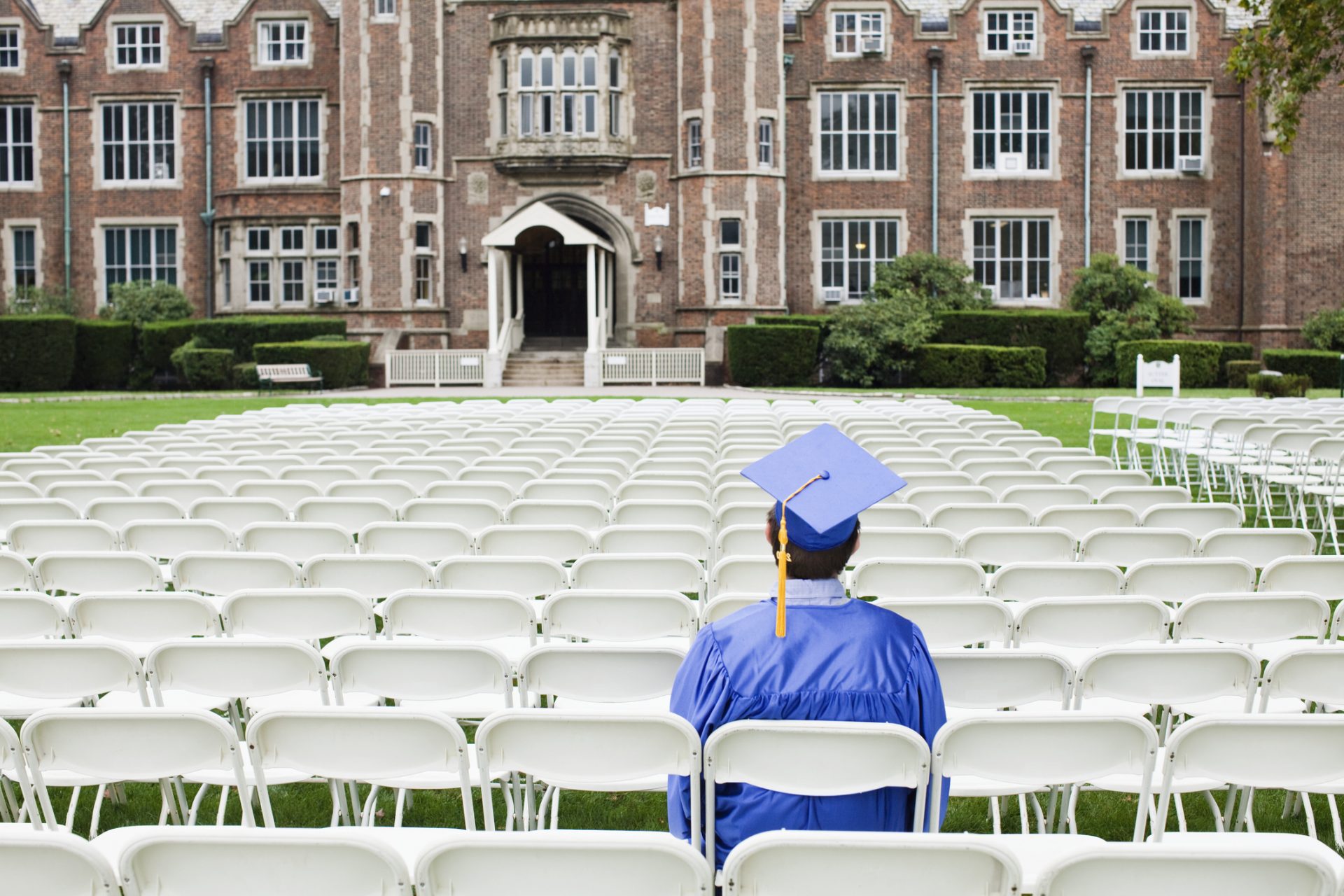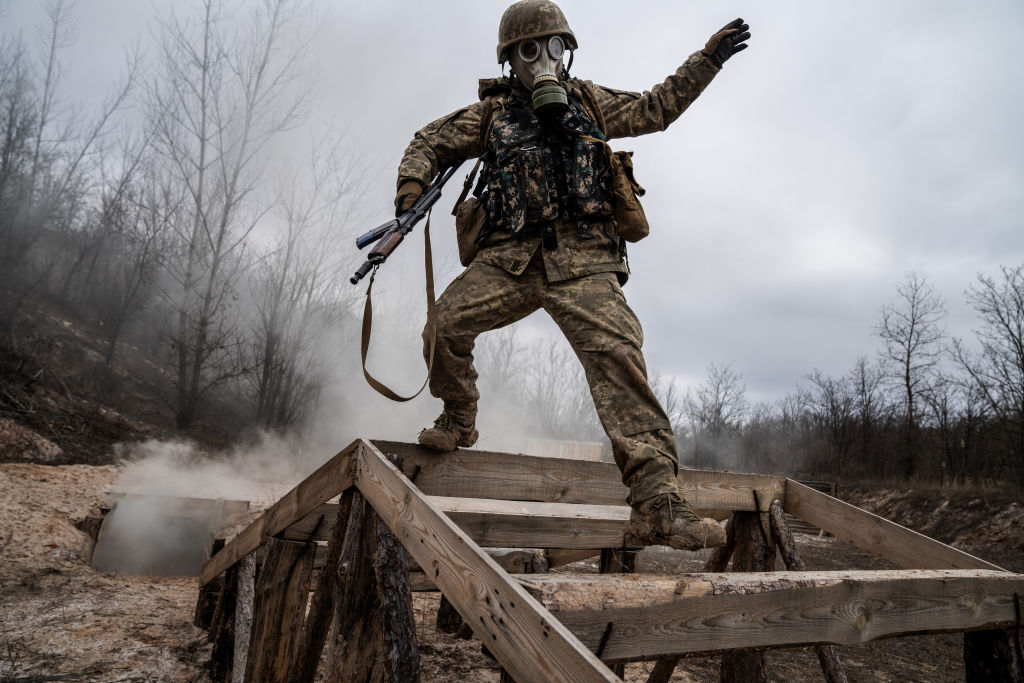Caged in: Shanghai authorities add metal barriers to contain locked down residents
Chinese authorities have taken their "zero-Covid" policy one step further over the past couple of days by adding metal barriers outside of buildings where residents are forbidden from leaving.
Many videos and photos have been shared on social media of the new barriers being installed on April 23, with residents expressing their discontent with the measures.
The hardening of the government measures against the transmission of the coronavirus has residents in the districts affected feeling unsettled. It certainly would be concerning to one day wake up and, without warning, find that the entrance to your apartment building has been totally sealed off.
According to Caixin, a Chinese business media outlet, several buildings with positive cases in neighborhoods in the financial district of Pudong in Shanghai have had two-meter tall thin metal sheets or mesh fences installed.
The city of Shanghai is using a tiered system that divides neighborhoods into three categories based on the risk of transmission. Communities in the first category are under the strictest COVID-19 controls and were the main areas where the barriers were erected.
For those whose area is in the third category, some buildings allow people to leave their homes and visit public areas. These lucky residents who are in the third category were allowed outside for a free haircut from volunteers.
In many cases, they may just be one individual in an entire apartment building who has tested positive. Yet, according to the BBC, everyone who lives in the complex is locked in even if they do not have the virus.
Shanghai's 25 million residents have been in lockdown for weeks, and many had hoped that by the beginning of May, restrictions would be eased. However, these latest measures bring into question when life will return to normal in the city.
While the majority of countries are relaxing restrictions and accepting that we must simply learn to live with COVID-19, China stands by its zero-COVID policy.
The Chinese city of Shanghai is now in its fourth week of a strict lockdown, and residents are desperate for it to end. Join us to look at what life looks like for residents and their challenges during the lockdown in Shanghai.
CBC News Canada has spoken to some Canadians stuck in lockdown in Shanghai. The media outlet spoke to several families, including Racelle Luo, a 35-year-old mother who is confined with her husband and three children.
The family of five has been confined since March 10th to their Shanghai apartment and can only leave to take the rubbish to the bins and pick up grocery deliveries.
Among the biggest challenge, the family is facing is their mental health. Racelle told CBC News, "Occasionally, I start to just feel, like a very heavy burden, like I'm about to have a meltdown."
Racelle continued, "It's really difficult not being able to let them (her children) go outside and run around. You're worried about your kids' mental health."
In some districts of Shanghai, measures are easing slightly, however, but fully locking down a city two years into the pandemic, the city's residents are stressed, and some are reaching their limit.
Racelle Luo told CBC News that she does not believe COVID zero is possible: "The belief that China can be COVID zero is definitely unachievable. It's a pipe dream, and even if they were to get to COVID zero, it will definitely come back."
While mental health is undoubtedly an essential factor to consider when evaluating Shanghai residents' well-being, food shortages are another much more pressing issue. When measures began in Shanghai in phases in late March before being extended to the entire city in April, residents were given very little time to prepare.
According to the Washington Post, food shortages are rife across the city. As a result of restrictions, there are supply chain issues, and the neighborhood committees responsible for taking care of residents' basic needs are under considerable strain.
While the Chinese government claims that food boxes like the one pictured here are being delivered to residents in lockdown free of charge. However, according to the testimony of Shanghai residents, what they actually receive for provisions looks quite different.
Despite government images such as this one which are given to the press, the families that CBC News and other news outlets have spoken with have shared pictures of their government rations, which often look quite pitiful.
Per CBC News, a family of five received a measly ration of two onions, one zucchini, one carrot, and some ginger root. As their food for the WEEK from the government. The food received has been more bountiful but half rotten in other cases.
Shopping online is also possible, but shops are often sold out of many essentials. Ruth Chua, originally from Toronto, lives in Shanghai with her husband and two teenage sons. Chua told CBC News about the difficulties of obtaining provisions. "It's very hard to get food," Chua said.
"The first time we did it (online shopping), we managed to get about 20 things in our cart. We ended up with three things: carrots, coriander, and a jug of water. And we were thrilled with that," Chua said.
Pictured: a grocery delivery man in Shanghai on April 16.
Many residents have resorted to bartering as a result of these shortages. The Washington Post spoke to a 28-year-old manager at a tech company named Ashley Chi. Chi told the newspaper that leaving extra supplies in common areas for other residents has become common practice, as has bartering.
Chi told the Washington Post how she "recently traded about one cup of soy sauce for five liters of bottled water." Chi said, “At first, he wanted to pay me, but who needs money now? I need water!”
And if being locked down and facing food shortages wasn't stressful enough, the idea of being sent to a COVID-19 center is terrifying to many residents of the city.
Pictured: a man who tested positive is directed to a bus which will take him to a COVID center to isolate.
Per the Chinese government rules, anyone who has tested positive for coronavirus since early March and their close contacts are sent to a mass quarantine center or hospital, depending on symptom severity.
These centers are temporary field hospitals that have been built quickly and are not very comfortable. Some are construction sites or schools which have been repurposed.
They lack essential services such as private areas for sleeping or bathing and often do not even have doctors or nurses on site. Understandably, Shanghai residents fear going to these centers more than catching the virus itself.
It is clear that the residents of Shanghai are frustrated. While some areas have seen restrictions partially lifted with residents allowed outside, many are entering their third week or more of strict lockdown and are desperate for things to change. The people have attempted to take their complaints to officials.
The Washington Post reported that when Shanghai Communist Party chief Li Qiang (pictured) visited residents recently, a video of an older woman confronting the official about the lack of provisions went viral on social media.
In addition, neighbors could be heard in the background shouting from their apartments: “Save us! We don’t have enough to eat."
Many agree that the Chinese government's strict zero-covid policy is hurting the country's ordinary citizens. Residents of Shanghai are hopeful that by May, the lockdown will end. However, unless China is willing to give up its zero-covid policy, it is only a question of time until the subsequent lockdown begins.
More for you
Top Stories














































